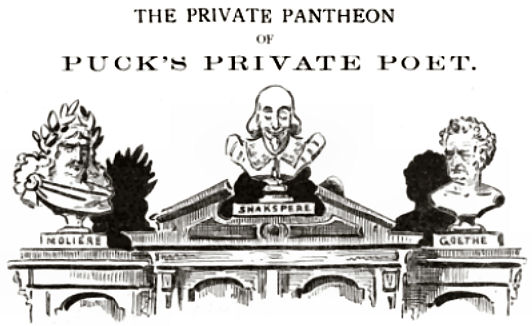Theodor Seuss Geisel? Mark Young? Bernard Baruch? Anonymous?
Question for Quote Investigator: I am trying to validate a quotation that is credited to Theodor Geisel who is better known as Dr. Seuss, the popular author of children’s books. I have been unable to determine where the quote appeared. The task is complicated because there are so many different versions. Here are four examples:
- Do what you want to do, say what you want to say, because those who matter don’t mind, and those who do mind don’t matter.
- Say what you want and be who you are, because those who matter don’t mind, and those who matter don’t mind.
- Always do what you want, and say what you feel, because those who mind don’t matter, and those who matter don’t mind.
- Be who you are and say what you feel, because those who mind don’t matter and those who matter don’t mind.
Some skeptical commentators say that Seuss never wrote it. What do you think?
Reply from Quote Investigator: There is no substantive evidence that Theodor Seuss Geisel wrote or said this expression. Researchers have been unable to locate the statement in any of his books.
An entertaining precursor appeared in the humor magazine “Punch” in 1855:1
A SHORT CUT TO METAPHYSICS.
What is Matter?—Never mind.
What is Mind?—No matter.
The second part of the statement under examination was in circulation by the 1930s. The earliest full instance located by QI was printed in 1938 in a journal based in London and written for municipal and county engineers. The phrase was used comically to discount the criticisms directed at housing designs. The words were enclosed in quotation marks suggesting that the quip was already known in 1938:2
Mr. Davies himself admitted that it was highly controversial and open to criticism; but criticism concerned both mind and matter. “Those who mind don’t matter, and those who matter don’t mind!”
The repetition of clauses together with the reversal of key words embodied a rhetorical technique called antimetabole. In this case, the positions of the words “mind” and “matter” were exchanged.
Starting in the 1940s the expression was used in two popular anecdotes about seating arrangements at parties. The first tale was published in the Canadian periodical “Empire Digest” in February 1946 and featured Sir Mark Young who was at that time the Governor of Hong Kong. In the following excerpt the term “A.D.C.” was used for “aide-de-camp”, a personal assistant:3
He is the hero of many stories illustrating a rapier-like wit. One of the best is that of the lady, lunching at Government House, who was aggrieved to find herself on Sir Mark’s left instead of his right. She approached her grievance obliquely—but made it fairly obvious. Finally she remarked: “I suppose it is really very difficult for your A.D.C. always to put your guests in their right places?”
“Not at all,” said Sir Mark blandly, “for those who matter don’t mind, and those who mind don’t matter.”
In March 1946 this story was reprinted in the “Lethbridge Herald” newspaper of Alberta, Canada with an acknowledgement to Empire Digest.4
In May 1946 the anecdote was retold in the “Omaha World Herald” newspaper of Omaha, Nebraska. The setting and participants were the same. Yet, the dialog was somewhat different. The thrust of the punchline was preserved:5
One day, at a luncheon in the Government House, a lady prominent in society was vexed to discover that she had been seated at the end of the table, instead of next to the host.
This was, of course, a great blow to her prestige. At the end of the meal, she approached Sir Mark and said rather tartly:
“Apparently you don’t care where you seat your guests.”
Piqued by her hauteur, he replied:
“Madam, those who really matter, don’t mind where they are seated. And those who mind,” he added, “don’t usually matter.”
In August 1946 an alternate version of the anecdote was printed, and the punchline of the joke was credited to a different prominent person named Bernard Baruch. Baruch was an influential American financier who acted as an advisor to U.S. Presidents. A gossip columnist named Igor Cassini was acknowledged for telling the story and for participating in the dialog:6
B. Baruch, who entertains so many notables, was recently asked by Igor Cassini how he managed the seating arrangements at his soirees. “I suppose it’s really very difficult to put the guests in their correct places.” commented Mr. C. “Not at all,” stated the elder statesman. “Those who matter, don’t mind. Those who mind—don’t matter!”
Here are additional selected citations in chronological order.
Continue reading “Quote Origin: Those Who Mind Don’t Matter, and Those Who Matter Don’t Mind”